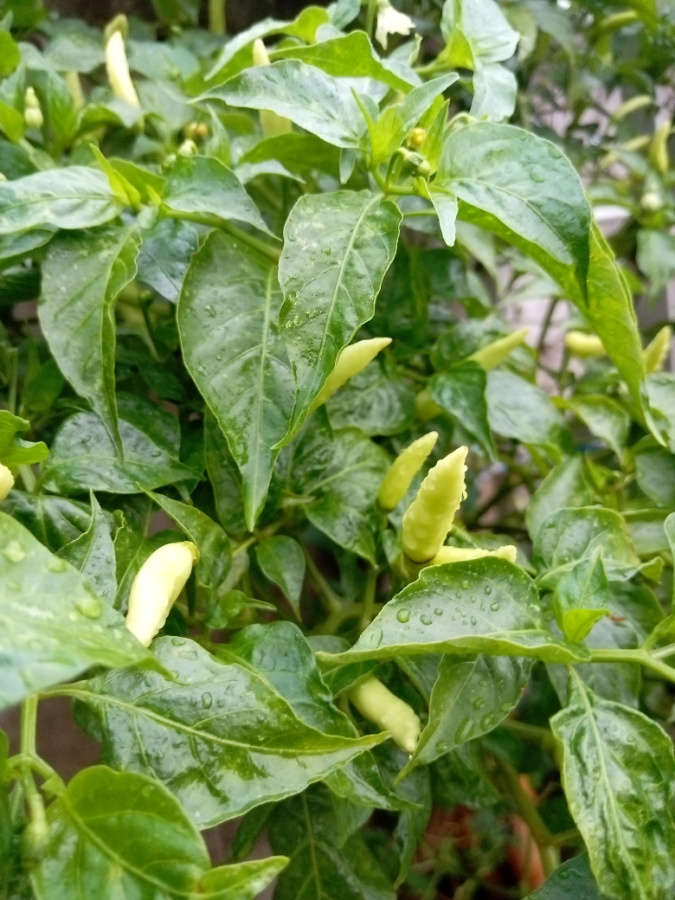Organic Vs. Synthetic Fertilizers: Which Is Best for Supporting Healthy And Balanced Pepper Plants?
In the realm of nurturing healthy and balanced pepper plants, the selection in between organic and synthetic fertilizers stands as a critical decision with far-ranging ramifications. While both choices aim to provide crucial nutrients to sustain plant growth, the subtleties of their effect on the soil, plant wellness, and the setting stimulate a debate that mirrors throughout the gardening area. Comprehending the distinct benefits and prospective pitfalls of each plant food type is critical for pepper cultivators seeking to maximize their yields while keeping a sustainable and eco-conscious technique.
Benefits of Organic Plant Foods
Organic fertilizers use a sustainable and environmentally-friendly approach to beneficial pepper plants, providing essential nutrients without using synthetic chemicals. These natural plant foods are originated from natural sources such as garden compost, manure, bone meal, and algae, promoting soil wellness and biodiversity. Unlike synthetic fertilizers, natural options release nutrients gradually, ensuring a consistent and balanced supply for pepper plants to thrive.
One considerable advantage of natural fertilizers is their capability to enhance dirt structure and water retention. By enhancing soil health and wellness, organic plant foods advertise beneficial microbial activity, which helps in nutrient uptake by pepper plants. In addition, natural fertilizers decrease the danger of chemical run-off, shielding water sources from pollution and protecting the atmosphere.
In addition, natural plant foods contribute to long-term soil fertility by promoting the development of advantageous soil organisms. These organisms assist break down organic matter, releasing nutrients in a form that is quickly available to pepper plants. best fertilizers for peppers. By promoting a healthy soil community, natural fertilizers support sustainable pepper growing methods that benefit both plants and the atmosphere
Disadvantages of Synthetic Fertilizers
Synthetic plant foods, as opposed to their natural equivalents, present different drawbacks when utilized to nourish pepper plants, impacting both plant wellness and ecological sustainability. One major drawback of artificial plant foods is their tendency to leach nutrients from the soil quickly. This quick leaching can bring about nutrition discrepancies in the soil, creating plants to struggle with deficiencies or toxicities. Additionally, artificial fertilizers can harm valuable dirt organisms, such as earthworms and beneficial microorganisms, interrupting the dirt environment's balance.
In addition, the overuse of synthetic plant foods can contribute to water contamination. Excess fertilizers not taken in by plants can get rid of into water bodies, causing eutrophication, where algae blooms deplete oxygen degrees in the water, harming water life. Synthetic fertilizers are normally derived from non-renewable resources, such as fossil fuels, adding to carbon exhausts and environmental degradation throughout their manufacturing.
Nutrient Absorption Contrast
When comparing artificial and organic fertilizers in terms of nutrient absorption, organic fertilizers have the benefit of giving an extra well balanced and slow-release source of nutrients. Organic fertilizers have a selection of macro and trace elements that are not only advantageous for the plants but additionally advertise healthy soil microbial task, which helps in nutrient uptake.
Additionally, organic plant foods improve soil framework and water retention capability, enabling pepper plants to access nutrients extra effectively. This improved dirt top quality promotes origin development, making it possible for far better nutrient absorption. Synthetic plant foods, although at first boosting plant development due to their high nutrient focus, may prevent long-lasting nutrient absorption by degrading dirt health with time.
Environmental Influence Considerations

On the various other hand, synthetic fertilizers, although typically more concentrated and right away offered to plants, can have harmful effects on the environment otherwise used appropriately (best fertilizers for peppers). Their manufacturing requires high energy inputs, leading to greenhouse gas emissions and adding to environment modification. The drainage of excess artificial fertilizers can infect water resources, leading to eutrophication and harming marine environments.
Ideal Plant Food Practices for Peppers
To accomplish this, it is necessary to adhere a fantastic read to ideal plant food techniques customized to the details demands of pepper plants. One critical technique is to execute a dirt examination before applying any fertilizers.
Another important practice is to feed pepper plants at the correct time. Typically, peppers gain from obtaining plant food at planting and then again when they begin to blossom. Over-fertilizing can cause nutrition imbalances and harm the plants, so it is essential to adhere visit this web-site to suggested application rates.
In addition, selecting a well balanced fertilizer with an NPK proportion that fits pepper plants' needs is fundamental. Inevitably, combining synthetic and natural fertilizers carefully can help nurture healthy and balanced pepper plants while reducing ecological impact.
Final Thought

Organic plant foods use a lasting and environmentally-friendly technique to nourishing pepper plants, supplying necessary nutrients without the usage of artificial chemicals. Unlike artificial fertilizers, natural choices YOURURL.com release nutrients slowly, guaranteeing a stable and balanced supply for pepper plants to thrive.
Artificial fertilizers, in comparison to their natural equivalents, present different drawbacks when used to nurture pepper plants, affecting both plant health and wellness and environmental sustainability. When contrasting artificial and organic fertilizers in terms of nutrient absorption, natural fertilizers have the advantage of giving a much more balanced and slow-release resource of nutrients.Additionally, organic plant foods enhance dirt structure and water retention capacity, permitting pepper plants to gain access to nutrients more successfully.
Comments on “Discover the Best Fertilizers for Peppers: Top Picks for Optimal Growth”